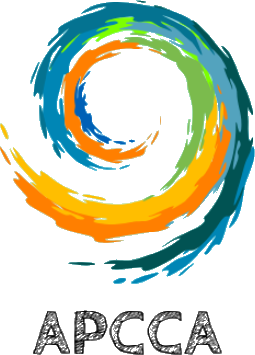Blog
Blog
Teenage Love: First Crushes, Big Feelings & Learning the Hard Way
Teenage years are intense. Hormones are flying around like fireworks, everything feels new and exciting, and the heart often takes the lead before the head can catch up. It’s a time of firsts—first crushes, first kisses, maybe even first heartbreaks. But it’s also a time of emotional chaos, where identity is still forming, and boundaries are being tested left, right and centre.
May
2025
Domestic Abuse and Neurodivergence: What We Need to Talk About
In the conversation around domestic abuse, one group is often overlooked: individuals with Special Educational Needs (SEN) and those who are neurodivergent. Whether we’re talking about autism, ADHD, dyslexia, dyspraxia, or other cognitive differences, these individuals face unique challenges—many of which make them especially vulnerable to abuse. And unless we understand the full picture, we’re at risk of missing the signs entirely.
May
2025
Breaking Free from Domestic Abuse: Understanding and Taking Action
What is Domestic Abuse?
Domestic abuse isn’t just about physical violence. The official UK definition describes it as “any incident or pattern of controlling, coercive, threatening, degrading and violent behaviour, including sexual violence, in the majority of cases by a partner or ex-partner, but also by a family member or carer.”
That’s the legal definition. But if you’re living it, you might not see it in such clear terms. You might just feel like you’re constantly treading carefully, trying not to say or do the wrong thing. You might feel drained, anxious, or like you’ve lost your sense of self. Maybe you wonder if it’s really abuse—after all, they don’t hit you, or they apologise after, or they tell you it’s your fault.
Apr
2025
Navigating Difficult Mother-Based Relationships: From Mother-Daughter Bonds to Mother-in-Law Dynamics
Mother’s Day often evokes warm and fuzzy feelings—celebrations of love, gratitude, and appreciation. But for many, this holiday can stir up complicated emotions, especially when relationships with mothers or mothers-in-law are strained or even toxic. Whether it’s a difficult mother-daughter dynamic, a challenging mother-son relationship, or tension with a mother-in-law, these relationships are not always simple. If you’re finding yourself in one of these situations, you’re not alone, and there are ways to navigate these tricky waters.
Let’s talk about how these relationships can become difficult, the red flags of toxicity to watch out for, and some practical tips for improving those connections.
Mar
2025
How birth order can deeply shape our personalities and behaviours
In my February blog, we explored the concept of “Older Child Syndrome”, unpacking the unique challenges and traits often experienced by firstborns. This topic was part of a broader discussion in the blog “Navigating Strained Sibling Relationships: A Path to Healing and Harmony”, where we delved into how sibling dynamics can shape us well into adulthood. In that post, we focused on the role of the eldest child and how their early family experiences contribute to their adult behaviours and relationships.
Now, in this continuation, we’re going to dive deeper into the experiences of middle children and youngest children. Just as firstborns can carry certain traits into adulthood, middle and younger siblings often face their own sets of challenges and behaviours that stem from their roles within the family. Understanding these dynamics is key to personal growth and healthier relationships.
Mar
2025
Building Positive Workplace Relationships: Why It’s Crucial and What to Do When They Break Down
Let’s be honest—work isn’t just about what you do. It’s about who you do it with. The relationships we build in the workplace play a huge role in how we feel about our jobs. When these relationships are positive, it creates an environment where we can thrive. But when they break down, it can have devastating effects on our mental health, leading to stress, anxiety, and even time off work.
Feb
2025
Navigating Strained Sibling Relationships: A Path to Healing and Harmony
If you’re reading this, it’s likely because you’re feeling the weight of a strained family relationship—specifically, a relationship with a sibling. And I want you to know, right from the start, that I completely understand how challenging this can feel. Growing up, we’re often led to believe that sibling relationships are meant to be full of laughter and support, but in reality, they can be quite complicated. And sometimes, things just don’t turn out that way.
Feb
2025
Understanding Relationships and Communication: How to Build Healthy Connections
Whether you’re reading this as a long-time client or someone new exploring how to improve your relationships, it’s important to recognise that relationships are central to our lives. We experience various kinds, from romantic relationships to friendships, family bonds, and even professional connections. While each type is different, there is one common thread that can either make or break them: communication.
Today, I want to explore how relationships break down when communication falters, why this happens, and how to rebuild those connections with healthier communication.
Feb
2025

